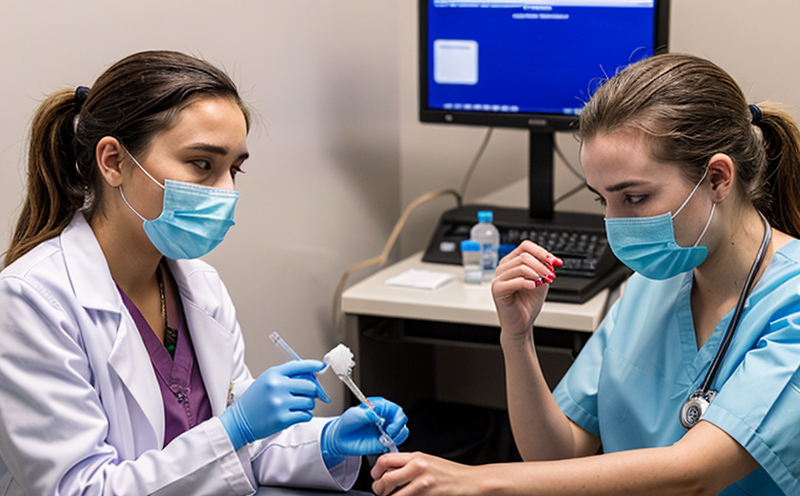ASTM E2789 Standard Guide for Microbial Identification Testing
The ASTM E2789 standard guide provides a comprehensive approach to microbial identification testing, ensuring accurate and reliable results. This guide is essential for laboratories conducting microbiological analyses in various sectors including healthcare, food safety, pharmaceuticals, and environmental monitoring.
Developed by experienced professionals from the biological and microbiology field, ASTM E2789 focuses on minimizing errors associated with misidentification of microorganisms. The standard offers clear protocols that are universally applicable, ensuring consistency across different laboratories worldwide. This is particularly important in sectors like clinical microbiology where accurate identification can significantly impact patient care.
The guide covers multiple aspects of microbial testing, including sample collection, preparation, and analysis techniques. It emphasizes the importance of using appropriate culture media and reagents to ensure optimal growth conditions for microorganisms. Proper specimen handling is crucial not only for achieving accurate results but also for ensuring safety in laboratory settings.
ASTM E2789 highlights the significance of selecting appropriate methods for identification, such as phenotypic tests (e.g., API systems) or molecular techniques like PCR and gene sequencing. These advanced methods allow for precise differentiation between closely related species which is critical for effective treatment decisions in clinical settings.
One key advantage of this standard lies in its emphasis on quality assurance throughout the entire process from sample collection to final report generation. By adhering strictly to the outlined procedures, laboratories can reduce variability and improve reproducibility between batches or sites.
The guide also stresses the importance of validation studies which demonstrate that specific tests meet performance criteria specified by international standards (ISO 16147, IEC 62305). Regular verification ensures continued accuracy over time as new strains emerge constantly in both clinical and environmental contexts.
Scope and Methodology
- Sample preparation techniques tailored for different types of specimens (e.g., blood, urine)
- Description of various phenotypic tests including biochemical reactions, colony morphology observations
- Instructions on how to perform molecular assays such as PCR amplification and sequencing analysis
- The sequence in which these tests should be conducted for best results.
- Interpretation guidelines for integrating data from multiple testing methods into a single conclusive report.
Eurolab Advantages
At Eurolab, we leverage our expertise in ASTM E2789 to offer unparalleled support and services related to microbial identification. Our team of specialists ensures that all tests comply strictly with this standard, providing clients peace-of-mind knowing their results are accurate and reliable.
We provide a wide range of microbiological testing services across different sectors including healthcare providers, food producers, pharma companies, and environmental agencies. Whether you need routine screening or specialized studies for rare pathogens, Eurolab can meet your needs effectively.
Environmental and Sustainability Contributions
- Reduction in antibiotic resistance through accurate diagnosis of infections which helps prevent overuse of antibiotics.
- Improved patient outcomes by enabling prompt initiation of effective therapies based on correct microbial identification.
- Promotion of sustainable practices within healthcare facilities by ensuring efficient use of resources and minimizing waste production during testing processes.





